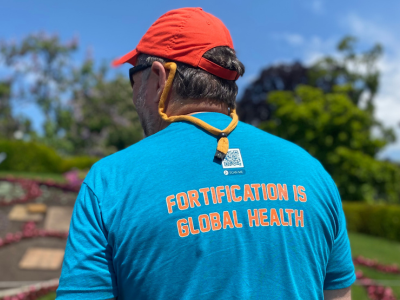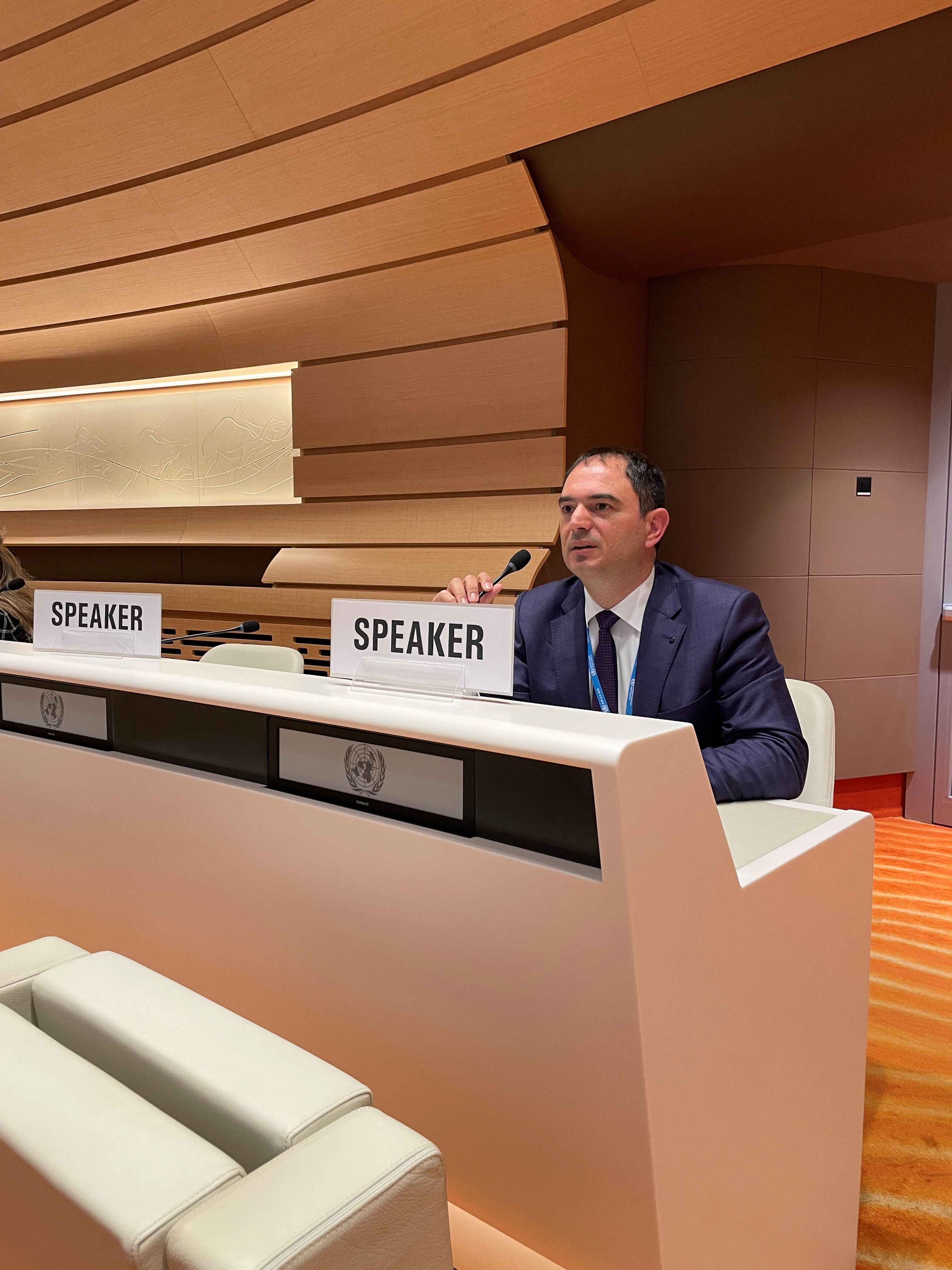 In a landmark development, the World Health Organization (WHO) recently announced its adoption of a resolution on “Accelerating efforts for preventing micronutrient deficiencies and their consequences, including spina bifida and other neural tube defects (NTDs), through safe and effective fortification,” marking a milestone for the spina bifida community globally.
In a landmark development, the World Health Organization (WHO) recently announced its adoption of a resolution on “Accelerating efforts for preventing micronutrient deficiencies and their consequences, including spina bifida and other neural tube defects (NTDs), through safe and effective fortification,” marking a milestone for the spina bifida community globally. The resolution, which urges countries to implement large scale food fortification to reduce the incidence of spina bifida and other NTDs, was initiated by the Global Alliance for the Prevention of Spina Bifida (GAPSBiF), a worldwide coalition co-founded by Jeffrey Blount, M.D., MPH, a professor in the Department of Neurosurgery at the University of Alabama at Birmingham Marnix E. Heersink School of Medicine.

Blount co-founded GAPSBiF with the goal of increasing awareness and advocating for the prevention of NTDs through large scale food fortification. In 2022, Blount and the World Federation of Neurosurgical Societies (WFNS) recruited the help of GAPSBiF member and Colombian neurosurgeon Kemel A. Ghotme, M.D., Ph.D., to get the draft resolution before the Colombian Ministry of Health. With sponsorship from Colombia, the resolution passed the WHO Executive Board without objection at the organization’s 152nd session in February 2023 and was slated for discussion and full vote at the 76th WHO World Health Assembly (WHA) meeting.
Folic acid has long been known to reduce the risk of neural tube defects. In the United States, mandatory fortification of enriched cereal grain products with folic acid was authorized in 1996 and fully implemented in 1998. Regulations for mandatory folic acid fortification are currently in place in more than 58 countries, although in many cases these regulations have not been implemented.
Essential vitamin and mineral deficiencies, particularly those of folate, iron, vitamin A and zinc, can have significant repercussions, including the development of spina bifida and other NTDs. Preventable micronutrient deficiencies are also associated with an increase in the likelihood of anemia, goiter, vision impairment and a weakened immune system.
The resolution calls countries to implement large scale food fortification (LSFF) by adding essential vitamins and minerals to staple foods and condiments. To successfully combat micronutrient deficiencies, countries should enhance LSFF in accordance to individualized national consumption patterns.
According to the WHO, “The resolution was adopted under the umbrella of the United Nations Decade of Action on Nutrition (2016-2025) report. The Nutrition Decade aims to accelerate the implementation of the Second International Conference on Nutrition (ICN2) commitments, achieve the global nutrition and diet-related noncommunicable disease (NCD) targets by 2025, and contribute to the realization of the Sustainable Development Goals by 2030.”
Through the outreach efforts led by Colombia and the civil society, the resolution garnered more than 15 floor support statements by WHO member states at the WHA. The final document was adopted on May 29, 2023, as WHA76.19. “This is a major step on a long journey which, if properly implemented and enforced, will save the lives of about a 250,000 babies per year,” said Blount.
UAB representatives and GAPSBiF members, Blount, Clinical Research Member and doctoral student Anastasia Smith, MPH, and Global Neurosurgery Program Manager Martina Gonzalez Gomez , M.D., MSc, along with Colombia and GAIN, organized and led a side event before the WHA meeting in support of the draft resolution. The event was held at the Château de Penthes in Geneva, Switzerland, and highlighted the expansive multi-sectoral support of health ministries from Colombia, Malaysia, Ecuador, Ethiopia and the Philippines. Patients, civil society members and advocates from the WFNS, GAIN, WHO and UNICEF were also represented. “It was an invaluable experience to witness the multidisciplinary support that this resolution has in the global community,” noted Smith.
Moving forward, UAB will remain active and invested in monitoring the resolution’s progress alongside the civil society and working one-on-one with countries, guiding them in their national and regional implementation plans. “Implementation of this resolution is key to achieving a positive impact on the lives of many children and families, and this can be possible through a variety of disciplines working together,” said Gonzalez.
The UAB Department of Neurosurgery recognizes the critical link between micronutrient fortification and combatting NTDs and stands united with the global health community in applauding the WHO's support of the fortification movement.





